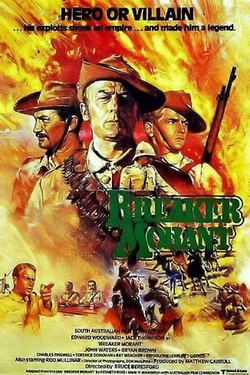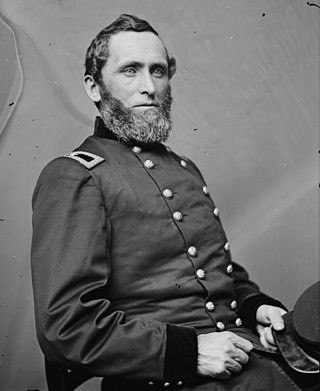
The Nuremberg principles are a set of guidelines for determining what constitutes a war crime. The document was created by the International Law Commission of the United Nations to codify the legal principles underlying the Nuremberg Trials of Nazi party members following World War II.
Military justice is the body of laws and procedures governing members of the armed forces. Many nation-states have separate and distinct bodies of law that govern the conduct of members of their armed forces. Some states use special judicial and other arrangements to enforce those laws, while others use civilian judicial systems. Legal issues unique to military justice include the preservation of good order and discipline, the legality of orders, and appropriate conduct for members of the military. Some states enable their military justice systems to deal with civil offenses committed by their armed forces in some circumstances.

Case citation is a system used by legal professionals to identify past court case decisions, either in series of books called reporters or law reports, or in a neutral style that identifies a decision regardless of where it is reported. Case citations are formatted differently in different jurisdictions, but generally contain the same key information.

Breaker Morant is a 1980 Australian war drama film directed by Bruce Beresford, who co-wrote the screenplay based on Kenneth G. Ross's 1978 play of the same name.
Insubordination is the act of willfully disobeying a lawful order of one's superior. It is generally a punishable offense in hierarchical organizations such as the armed forces, which depend on people lower in the chain of command obeying orders.
The 1902 court-martial of Breaker Morant was a war crimes prosecution that brought to trial six officers – Lieutenants Harry "Breaker" Morant, Peter Handcock, George Witton, Henry Picton, Captain Alfred Taylor and Major Robert Lenehan – of the Bushveldt Carbineers (BVC), an irregular regiment of mounted rifles during the Second Boer War.

Benjamin Mayberry Prentiss was an American soldier and politician. He fought in the Mexican–American War and on the Union side of the American Civil War, rising to the rank of major general. He commanded a division at the Battle of Shiloh, which suffered heavy casualties while defending what became known as the Hornet's Nest from continued Confederate assaults, and he eventually surrendered his division. He was criticized by some for his conduct in that battle. After his exchange, he continued to serve in the army until his resignation in 1863. He spent much of his remaining life practicing as a lawyer and as a politician in the Republican Party.

In the practice of international law, command responsibility is the legal doctrine of hierarchical accountability for war crimes, whereby a commanding officer (military) and a superior officer (civil) is legally responsible for the war crimes and the crimes against humanity committed by his subordinates; thus, a commanding officer always is accountable for the acts of commission and the acts of omission of his soldiers.

South Africa has a 'hybrid' or 'mixed' legal system, formed by the interweaving of a number of distinct legal traditions: a civil law system inherited from the Dutch, a common law system inherited from the British, and a customary law system inherited from indigenous Africans. These traditions have had a complex interrelationship, with the English influence most apparent in procedural aspects of the legal system and methods of adjudication, and the Roman-Dutch influence most visible in its substantive private law. As a general rule, South Africa follows English law in both criminal and civil procedure, company law, constitutional law and the law of evidence; while Roman-Dutch common law is followed in the South African contract law, law of delict (tort), law of persons, law of things, family law, etc. With the commencement in 1994 of the interim Constitution, and in 1997 its replacement, the final Constitution, another strand has been added to this weave.

The Superior Court of California, County of Sacramento, alternatively called the Sacramento County Superior Court, is the California Superior Court located in Sacramento with jurisdiction over Sacramento County.

Superior orders, also known as just following orders or the Nuremberg defense, is a plea in a court of law that a person, whether civilian, military or police, can be considered guilty of committing crimes ordered by a superior officer or official. It is regarded as a complement to command responsibility.

National Coalition for Gay and Lesbian Equality and Another v Minister of Justice and Others is a decision of the Constitutional Court of South Africa which struck down the laws prohibiting consensual sexual activities between men. Basing its decision on the Bill of Rights in the Constitution – and in particular its explicit prohibition of discrimination based on sexual orientation – the court unanimously ruled that the crime of sodomy, as well as various other related provisions of the criminal law, were unconstitutional and therefore invalid.

The courts of South Africa are the civil and criminal courts responsible for the administration of justice in South Africa. They apply the law of South Africa and are established under the Constitution of South Africa or under Acts of the Parliament of South Africa.
Captain Alfred James "'Bulala" Taylor was an Anglo-Irish military officer who was active in Africa during the Scramble for Africa and the Second Boer War. He is best known as a defendant in one of the first war crimes prosecutions in British military history. Born into a middle-class Protestant family in Dublin, Ireland, Taylor jumped ship in Cape Town in 1886 and served in the British South Africa Police of the British South Africa Company (BSAC). He played a major role in the colonisation of modern-day Zimbabwe by the BSAC. During two subsequent uprisings by the Northern Ndebele people against Company rule in Rhodesia, Taylor was dubbed by the Ndebele "Bulala" and "Bamba".
The principle of command and obedience in the Bundeswehr, along with the concept of "citizens in uniform", was central to the 1953 idea of "leadership development and civic education". The revised definition of military orders and obedience, as well as superior–subordinate relations by the former "Amt Blank", was a 1950s result of Nazi German excesses. Central aims were the reduction of power to command by superiors and a shared responsibility for obedience by subordinates.

The Western Cape Division of the High Court of South Africa is a superior court of law with general jurisdiction over the Western Cape province of South Africa. The division, which sits at Cape Town, consists of 31 judges led by Acting Judge President Patricia Goliath, former Acting Constitutional Court Justice.

British war crimes are acts committed by the armed forces of the United Kingdom that have violated the laws and customs of war since the Hague Conventions of 1899 and 1907, from the Boer War to the War in Afghanistan (2001–2021). Such acts have included the summary executions of prisoners of war and unarmed shipwreck survivors, the use of excessive force during the interrogation of POWs and enemy combatants, and the use of violence against civilian non-combatants and their property.
Plascon-Evans Paints Ltd v Van Riebeeck Paints (Pty) Ltd is an important case in South African law, particularly in the area of civil procedure and trade marks.
In Carelse v Estate De Vries, an important case in South African succession law, Carelse was seduced, on the promise of marriage, by the deceased. Carelse and the deceased continued their relationship, which produced seven children, before the deceased died intestate.
Reginald Percy Basil Davis KC was a South African judge and Judge President of the Cape Provincial Division of the Supreme Court.












